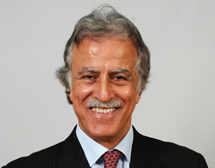
Learning and Well-being: An Agenda for Change
Learning and Behavioural Sciences September 23, 2015


The understanding of well-being as an important goal for individuals and for communities has gained real traction in recent years. Yet the idea of “learning for well-being” is still only at the margins in schools the world over. Curricula for twenty-first century skills continues to focus primarily on the academic subjects and on transversal skills such as critical thinking and problem solving while programs that support well-being tend to be extra-curricular.
This report examines how to define, measure and foster learning for well-being in schools and through policies. It analyses six case studies of positive practices from different regions and identifies some of the common principles that can serve as a framework for innovators working in other contexts. It also develops recommendations to actively promote well-being at the level of international frameworks, national education policies and schools.

President, Palestine Technical University Kadoorie
Professor Marwan Awartani has served as Chairman of the Arab Foundations Forum, Acting President of AlQuds University, Co-Founder of the Palestine Academy of Science and Technology.

Director, the European Institute of Education and Social Policy
Janet Looney is the Director of the Institute of Education and Social Policy and Joint Editor of the European Journal of Education.
This report has been reviewed by:
We use cookies to improve your experience on our website, and to help us analyze and understand our audience. By clicking “Save and Accept”, you consent to the use of the cookies we and third parties place on your browser. You can change your preferences and opt-out by visiting our Privacy Policy.
| Cookie | Duration | Description |
|---|---|---|
| _gat_gtag_UA_* | 1 minute | Google Analytics sets this cookie to store a unique user ID. |
| browser_id | 5 years | This cookie is used for identifying the visitor browser on re-visit to the website. |
| ln_or | 1 day | Linkedin sets this cookie to registers statistical data on users' behaviour on the website for internal analytics. |
| Cookie | Duration | Description |
|---|---|---|
| muc_ads | 1 year 1 month 4 days | Twitter set this cookie to collect visitor navigation data to optimise ad relevance. |
| Cookie | Duration | Description |
|---|---|---|
| __cf_bm | 30 minutes | This cookie, set by Cloudflare, is used to support Cloudflare Bot Management. |
| Cookie | Duration | Description |
|---|---|---|
| -HKxBE_ZSgr | 1 day | No description |
| -JLeuobIR | 1 day | No description |
| cerber_nexus_id | less than a minute | WP Cerber sets this cookie to control the user IP and screen incoming requests for malicious activity. |
| qVUnXuh | 1 day | No description |
| scribd_ubtc | 10 years | No description available. |
